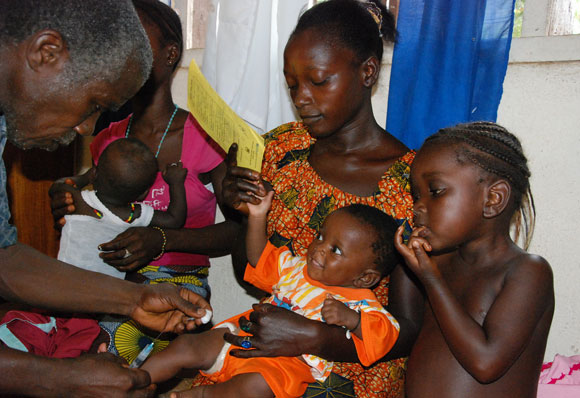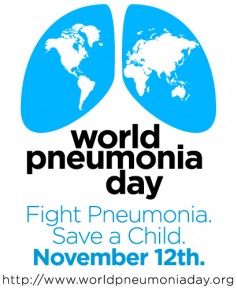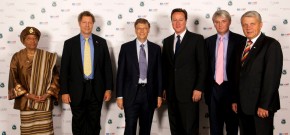
Pneumonia used to be called 'the old man's friend' by some, because it was thought to bring swift and painless death to elderly patients who become unconscious and slip away in their sleep.
But 98.5% of pneumonia deaths actually happen in the developing world and pneumonia is not a friend.
In fact, pneumonia is the world's biggest killer of children, filling their little lungs until breathing becomes difficult and painful. It kills 1.5 million children under five every year.
But as we observe World Pneumonia Day this year on Saturday 12 November, we can now celebrate the fact that vaccines against pneumococcal disease, the biggest cause of pneumonia, are finally reaching the children that need them most.
 A little bit less than one year ago, in December 2010, Nicaragua became the first of 15 developing countries so far to have introduced the pneumococcal vaccine. By the end of next year, 13.6 million children in developing countries will have been immunised against the leading cause of pneumonia.
A little bit less than one year ago, in December 2010, Nicaragua became the first of 15 developing countries so far to have introduced the pneumococcal vaccine. By the end of next year, 13.6 million children in developing countries will have been immunised against the leading cause of pneumonia.
The idea that vaccines can save lives is not a new one, of course. In the last 30 years or so, immunisation has brought profound drops in the incidence of many diseases, including measles, polio and tetanus. It has also eradicated smallpox.
As the CEO of the GAVI Alliance, I'm proud to say that - with magnificent support from the British government - we have made available these pneumococcal vaccines to children in the world's poorest countries.

GAVI's innovative approach to public health funding - the Advance Market Commitment (AMC) - has reduced market uncertainty for manufacturers, with donors committing funds to guarantee the price of vaccines once they are developed.
This financial commitment gives manufacturers the incentive they need to develop or build their capacity to supply these urgently needed vaccines - and to supply them at drastically lower prices.
By some estimates, these vaccines are now reaching developing countries about 10 to 15 years earlier than they would otherwise have done.
Breast-feeding, better nutrition, and antibiotics are also key to reducing the burden of pneumonia deaths in the developing world. But when isolation and lack of resources mean medical care is hard to access, immunisation becomes even more important. GAVI also supports vaccines against Hib, measles and whooping cough, which help reduce the pneumonia burden.
The pneumococcal vaccines alone could save as many as seven million child lives by 2030.
Like the other vaccines that we support, pneumococcal vaccines help save lives and protect the health of communities. And by protecting families from disease and disability, we are also saving them the costs of expensive medical care and treatment, preventing many of them from sliding deeper into poverty.
In our first decade of work, GAVI has helped countries immunise nearly 300 million children so far and the British government's support has been invaluable in helping us achieve this.
My British friends and I agree: no child should die of a disease we can prevent.
Find out more about DFID's work in the key areas of immunisation and child health or learn about our work with the GAVI Alliance.
Please note, this is a guest blog. Views expressed here do not necessarily represent the views of DFID or have the support of the British Government.

Recent Comments